#141 What should you eat if you're trying to conceive?
Let's talk about the pregnancy diet
Fertility rates are dropping. Sperm counts are declining. They’re finding microplastics in our balls. And more women than ever are struggling with fertility…
I say this not to scare you but for us to come to terms with the reality in which we all live. Perhaps some of the reasons for these statistics are societal, but I fully believe that a large part of the problem revolves around nutrition - or the lack of it.
We’ve done two digital fertility issues so far and the reception for both have been out of this world. It’s clear that this is a topic that resonates and it might be a silent battle many of us are struggling with.
We’re working on combining both these issues (along with some additional pieces) into one comprehensive coffee table book. No release date yet but you can expect it sometime late fall. But in the meantime, I thought it would be good to discuss what the optimal pregnancy diet looks like - if you’re trying to conceive.
Is it as simple as just eating for two? Or would we be better off making sure that certain minerals and nutrients are prioritized?
I really loved Victoria Weber’s piece that we published in the first fertility digital early this year (full link to read here), so I’ll share her piece here, she explains it all incredibly well:
The world we live in today is not like those of our ancestors. Did you know an orange 50 years ago contained 8 TIMES more nutrients than an orange today? That means you’d have to eat eight oranges to receive the nutrient benefits of what our grandmothers ate in just one orange.
This isn’t just about oranges. Our entire food system has undergone a drastic transformation, and our bodies are feeling it. Nowhere is this more evident than in our reproductive health, where we’re seeing a rise in challenges in fertility rates worldwide. The numbers tell a stark story: 1 in 6 people globally now struggle with fertility. Male sperm counts are declining so rapidly that researchers project they could reach unsustainable levels by 2045. Meanwhile, an estimated 10% of women face infertility — a number that continues to rise. This isn’t just a crisis for the future — it’s happening right now.
What’s even more concerning is how common fertility challenges have become in our modern world. As many as a third of Americans have either sought fertility treatment themselves or know someone who has. The story isn’t just about waiting longer to have babies (though yes, that’s part of it). Fertility is a complex dance of timing, nutrition, and biology — and modern life is throwing off the rhythm at every step.
Our soils have become depleted of essential nutrients, and our modern food system often prioritizes quantity over quality. When we pair this with longer working hours, increased stress, and environmental toxins, we’ve created the perfect storm for reproductive challenges.
The most alarming part? By the time many women reach pregnancy, they’re already nutritionally depleted. A staggering 90% of pregnant women experience at least one nutritional deficiency. We’ve somehow normalized feeling exhausted, sick, and overwhelmed during pregnancy as if it’s just part of the journey. These deficiencies aren’t minor inconveniences — they’re serious threats to maternal and fetal health. Iron deficiency affects up to 50% of pregnant women worldwide, impacting everything from brain development to birth weight. Vitamin D deficiency, affecting over 40% of pregnant women, is linked to pregnancy complications and developmental issues. Even more concerning is that these deficiencies don’t just affect the current pregnancy — they create a cycle of nutritional debt that can impact fertility and health for generations to come.
But here’s the truth: it doesn’t have to be this way.
Our ancestors understood something we’re only beginning to rediscover — that fertility isn’t just about the nine months of pregnancy. It’s about the foundation we build before conception, the nutrients we store in our bodies, and the health we pass on to future generations. This is why preconception care is so crucial —it empowers us to take control of our reproductive health and the health of our future children.
Traditional cultures recognized this wisdom. They knew that creating new life requires deep nutritional reserves. They prioritized nutrient-dense foods, community support, and proper post-birth recovery. In many pre-modern societies, new mothers had an average of 14 caretakers, ensuring they could focus solely on recovery and bonding with their baby.
It was common to for previous generations to focus on deeply nourishing foods like organ meats for their concentrated nutrients, mineral-rich bone broths, fermented foods for gut health, and sacred fertility foods like fish roe and raw dairy from grass-fed animals. Modern science now confirms what these cultures knew intuitively — these foods are powerhouses of the very nutrients crucial for reproductive health.
Compare this to our modern approach, where many women are expected to bounce back quickly, often returning to work before their bodies have fully recovered. This cycle of depletion affects not just current health but future fertility and the health of generations to come. The good news? We can change this story. The path to optimal fertility begins with nutrition. Both men and women can significantly improve their reproductive health through specific, nutrient-dense foods. The following two pages will give you a rough guide of what foods to focus on during fertility, curated for her and curated for him. However, remember that as important as knowing what to eat is understanding what to avoid. The modern diet is full of fertility-depleting foods that can undermine your efforts. Processed foods loaded with inflammatory oils directly impact hormone balance. Excess sugar and refined carbohydrates destabilize blood sugar and hormone levels. Factory-farmed meat and dairy often contain hormone disruptors that can affect fertility. Artificial sweeteners can disrupt gut health, while excess alcohol and caffeine deplete crucial nutrients.
Consuming iron-rich foods help support egg health and prevent anemia. Healthy fats provide the body with essential fatty acids for hormone production. Antioxidants and minerals protect egg quality and boost reproductive health. Overall, these foods are particularly rich in folate, CoQ10, and B-vitamins — nutrients essential for egg quality and hormone balance.
Remember: timing matters. The egg and sperm that will create your future child take about 90-100 days to mature. This means the foods you eat today influence your fertility three months from now. It’s not just about what you eat when you’re trying to conceive — it’s about the nutritional foundation you’ve been building for months before.Understanding this timeline is crucial. When couples face fertility challenges, many turn immediately to medical interventions without first addressing the fundamental building blocks of reproductive health. What most don’t realize is that each egg and sperm cell undergoes a complex maturation process that depends entirely on the nutrients available during their development. The health of your future child begins long before conception, in the choices you make today.
Think about it: you’re not just feeding yourself — you’re nourishing the building blocks of a new life. While modern fertility treatments can be invaluable, creating a solid nutritional foundation first can often improve their success rates — or sometimes even eliminate the need for them altogether. This is why traditional cultures placed such emphasis on preconception care, often preparing parents-to-be nutritionally for months or even years before conception. You wouldn’t build a house on a shaky foundation. Similarly, creating new life requires a solid nutritional foundation. Every cell, every tissue, and every organ of your future child will be built from the nutrients available in your body. This is why the preconception period is so crucial — it’s your opportunity to fill your nutrient reserves and create the optimal environment for new life.
At Marma, we understand that this journey can feel overwhelming. That’s why we’ve created resources that support you through every phase and bridge ancient wisdom with modern science. Our comprehensive approach includes fertility-focused courses that guide you through preconception nutrition, pregnancy, and postpartum health. With hundreds of nourishing recipes, daily access to health coaches, and an engaged community of women sharing their wisdom, we provide the support you need to optimize your fertility naturally. We believe the path to fertility shouldn’t be walked alone. Through our platform, you’ll find everything from detailed nutritional guidance and meal plans to personalized coaching and community support. Whether you’re just beginning to think about conception or actively trying to conceive, Marma provides the tools, knowledge, and support system to help you build the foundations for generational health - because we believe that building generational health starts with nourishing ourselves deeply today.
Learn about our fertility nutrition courses, guides, recipes, and community support. Access Marma courses here.
Fundamentals
The yearn for analog is real. In a world with more screens than ever, it’s nice to appreciate tangible things in your hand. The texture. Weight. The way it all feels. You can’t replicate that. Prints are now available.
It’s an ideology
The menus of old
No QR codes; they were simply better
Gifts of nourishment
Food is love; food is nourishment
❋ ROASTED CARROTS WITH WHIPPED RICOTTA AND HOT HONEY
Some dishes hit that perfect note between elegance and comfort. Roasted Carrots with Whipped Ricotta and Hot Honey is one of them. This recipe transforms humble carrots into a restaurant-worthy side dish—or even a main if you pair it right—by combining sweet roasted vegetables with creamy ricotta and a spicy drizzle of hot honey. It’s colorful, textural, and packed with flavor in every bite.
The beauty of this dish lies in its simplicity. Roasting carrots intensifies their natural sweetness and gives them a slight char, which plays beautifully with the creamy, cool whipped ricotta underneath. Then comes the magic: a warm drizzle of honey spiked with chili flakes, adding just enough heat to make each bite pop.
Whether you’re hosting a dinner party or looking for a creative way to serve veggies during the week, this dish is sure to impress. Let’s dive into how to make it step-by-step!
❋ FRANCE’S FINEST WITH JAMES MARTIN: ICED BLACKBERRY SOUFFLES
It’s not an ice cream, it’s not a parfait, but a lovely dessert I used to make when I first worked in France at 14 years old. These frozen soufflés aren’t cooked, so they couldn’t be simpler to make.
❋ SOURDOUGH CARROT CAKE BARS WITH MAPLE CREAM CHEESE FROSTING
These moist and soft carrot cake bars are made with sourdough discard, warm spices, and toasted pecans! They're a delicious use for your leftover sourdough starter and very easy to make with a bowl and a whisk. The maple cream cheese frosting is the perfect, creamy match to the tender crumb. These bars can be eaten from your hand, no plates needed!
❋ Read our latest WARKITCHEN magazines:
❋ You asked, so we had to deliver. Prints are finally here! "Fundamentals" presents twelve prints, each sized 8.5" x 11", printed on 350gsm art paper with a protective matte finish. The prints are bundled and wrapped with soft 22g tissue paper - sealed gently with a cute watermelon sticker (as everything should be). Get your prints (that come in a bespoke WARKITCHEN linen gift box) here.
❋ If you’d like to contribute an article or sponsor a future issue, please send your pitch to rocky@warkitchen.net.
❋ Explore the full WARKITCHEN archive here.
❋ Adding us (rocky@warkitchen.net) to your contacts, or moving us to primary, will make sure you continue receiving these emails.
P.S. New coffee table book drops this Wednesday, August 6th at 9:30am EST
Each order comes with a beautiful 300gsm A5 card for you to send a handwritten letter this summer.




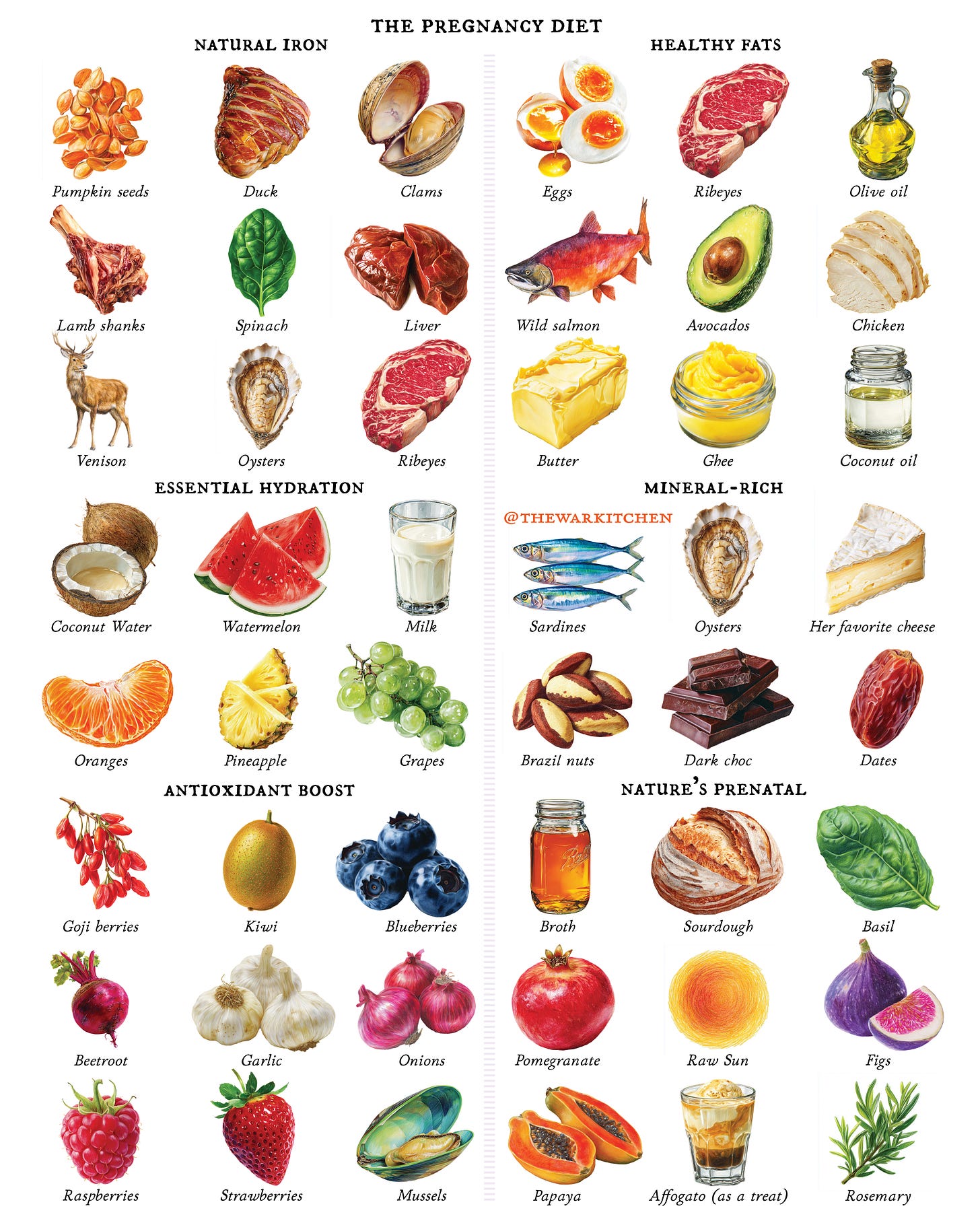

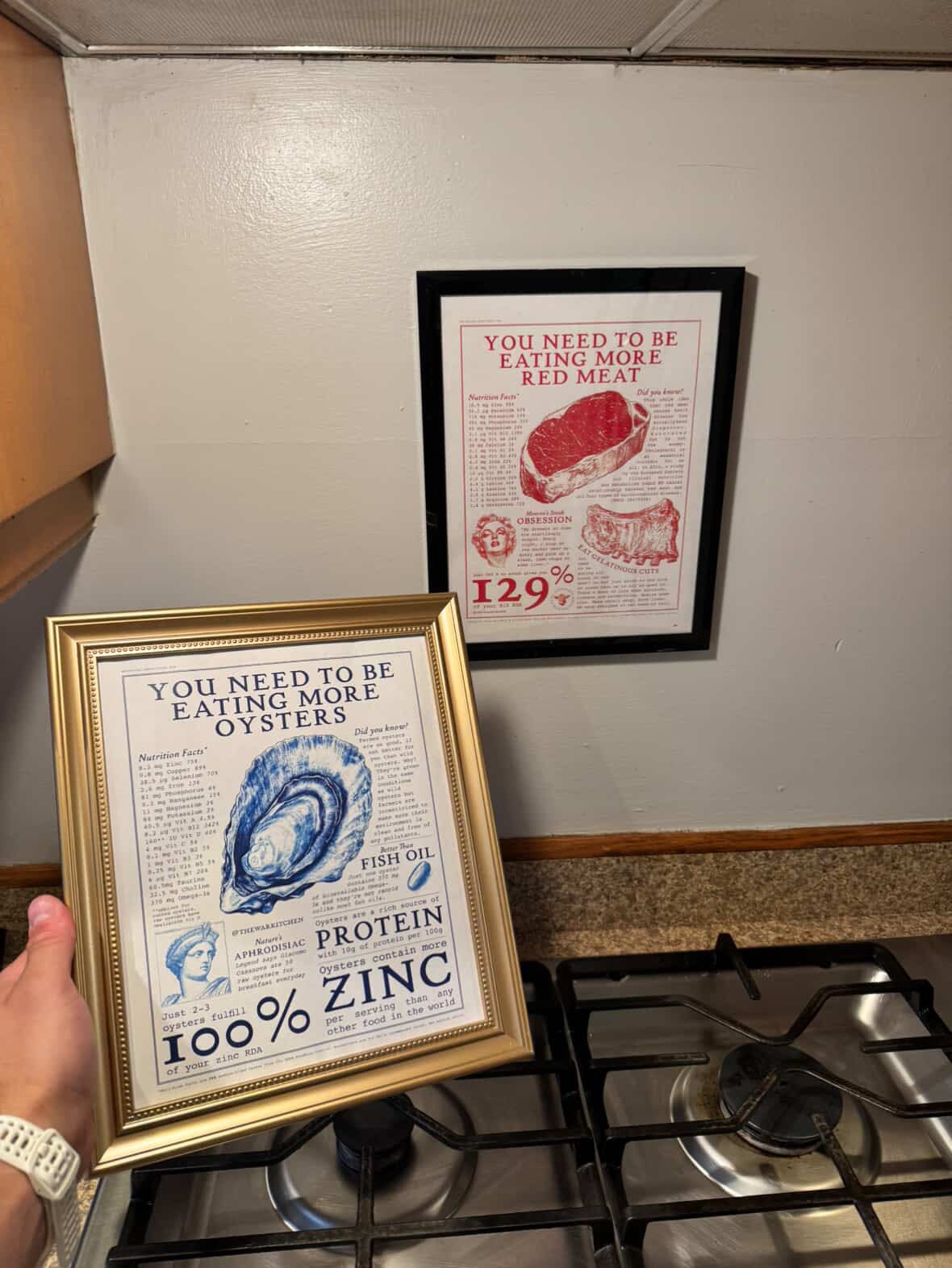
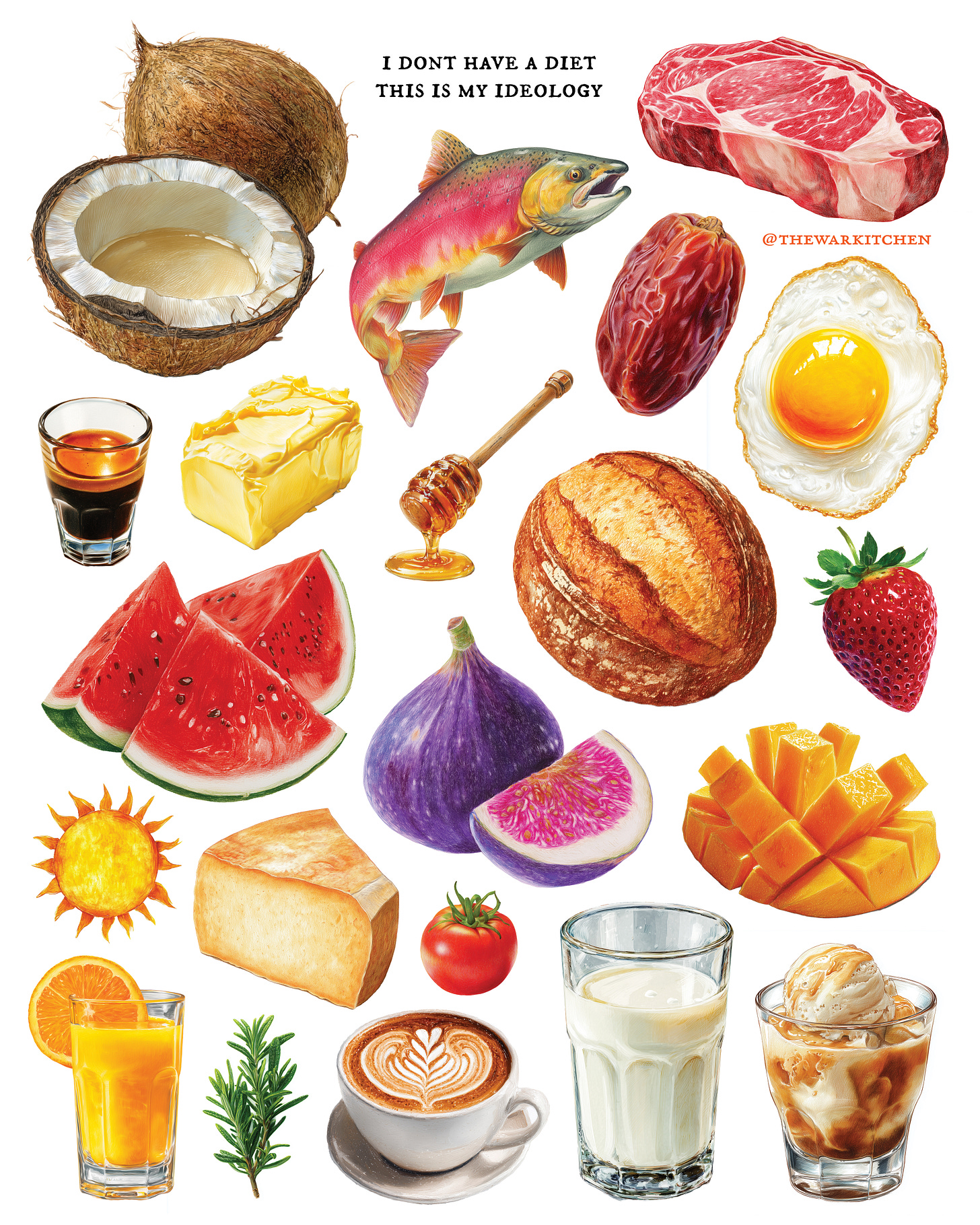
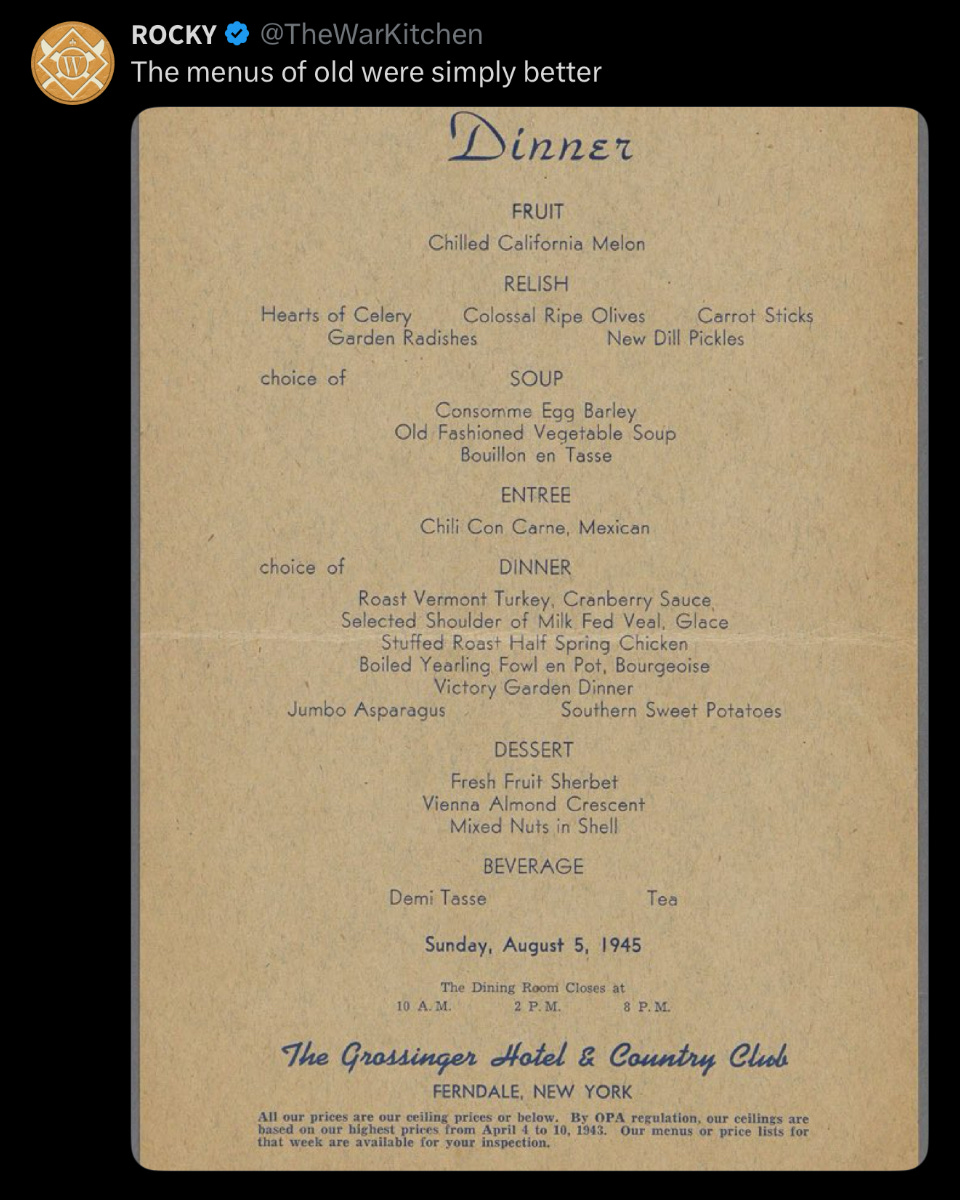
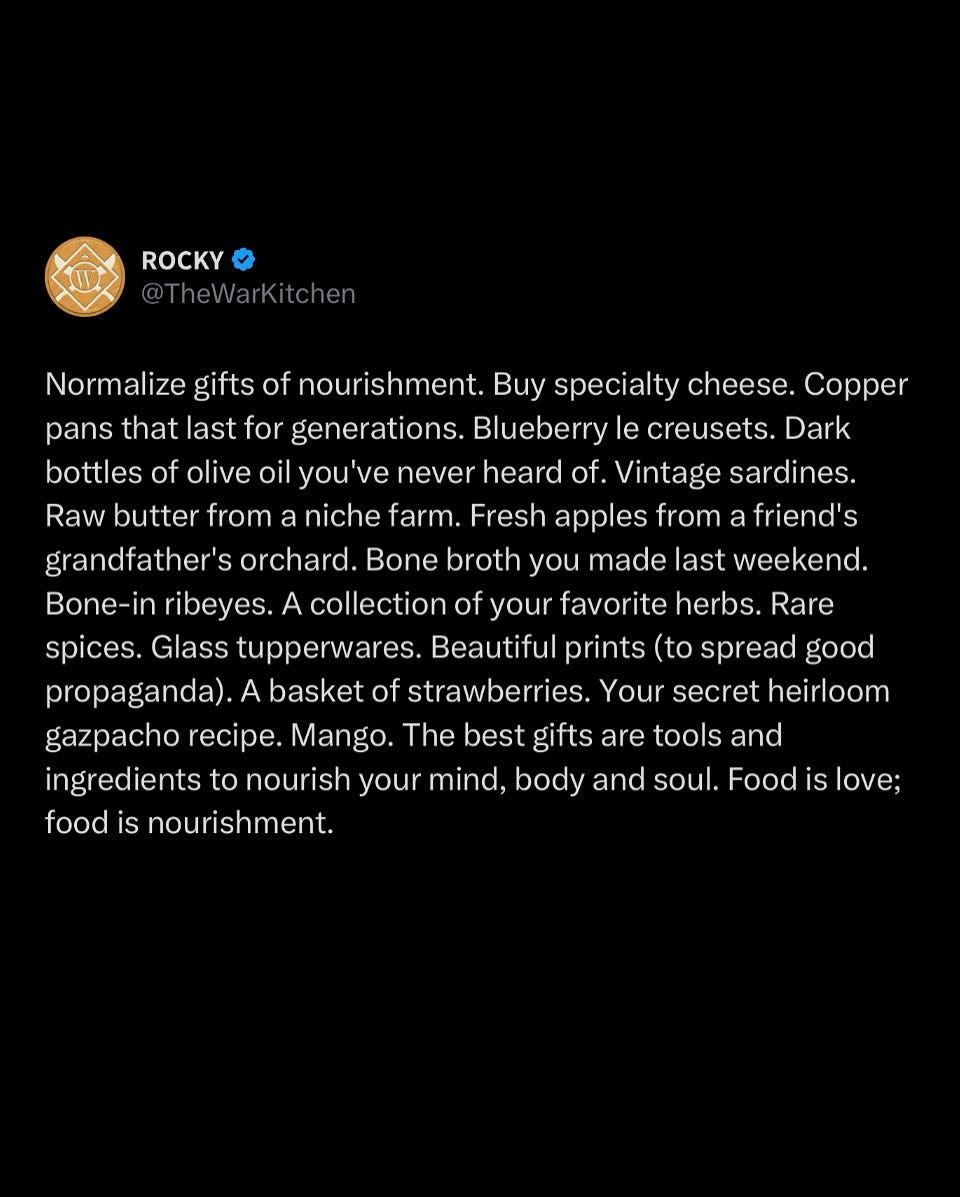




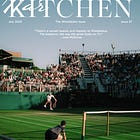




I just had my 4th at 40 after an 8 year gap between kids. I wondered and worried a bit about how my fertility would be at 39 versus 31. My husband and I focused on consuming foods daily like raw milk, pastured butter and eggs, meat, and fresh fruit (we live in Florida, so lots of great tropical options.) We also had beef liver, oysters, and fish eggs when we could and cut out alcohol as well as any toxins in the home we could think of.
We weren’t perfect by any means, but conceived fairly easily and now have a healthy, robust, and beautiful 6 month old girl. Eating nourishing food is such a key piece of fertility.